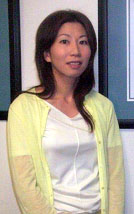Is the Movement of Evidence-based Practice a Real Threat to Music Therapy?
DOI:
https://doi.org/10.15845/voices.v13i2.696Palabras clave:
evidence-based practice, evidence-based- medicine, randomized controlled trialResumen
The author discusses what music therapists must work on to establish Evidence-based practice (EBP) in music therapy by referring to Saito's discussion of the misunderstandings and various interpretations of Evidence-based medicine (EBM), the issue of Empirically Supported Treatments (ESTs) in EBP in psychology (EBPP), and related discussions. Although the EBP movement tends to be recognized as a threat to music therapy, some recent discussions of EBM and EBP are encouraging for the development of EBP in music therapy. This paper shows that an integration of evidence of multiple types with clinical expertise and the individual needs in clients has become a consensus of EBP. However, the issues related to conducting Randomized controlled Trials (RCTs) and employment of standardized treatment protocols in music therapy have persisted as difficult problems. Because the issue of EBP is very complex and easily biased, effective learning of this issue should be promoted among music therapists so that they can successfully relate to the EBP movement and bring benefits to the field of music therapy. The author suggests that incorporating the ideas of EBP positively into the field of music therapy and constructing methodologies and theories will enhance EBP.
Descargas
Publicado
2013-06-04
Cómo citar
Otera, M. (2013). Is the Movement of Evidence-based Practice a Real Threat to Music Therapy?. Voices: A World Forum for Music Therapy, 13(2). https://doi.org/10.15845/voices.v13i2.696
Número
Sección
Original Voices
Licencia
Articles published prior to 2019 are subject to the following license, see: https://voices.no/index.php/voices/copyright

